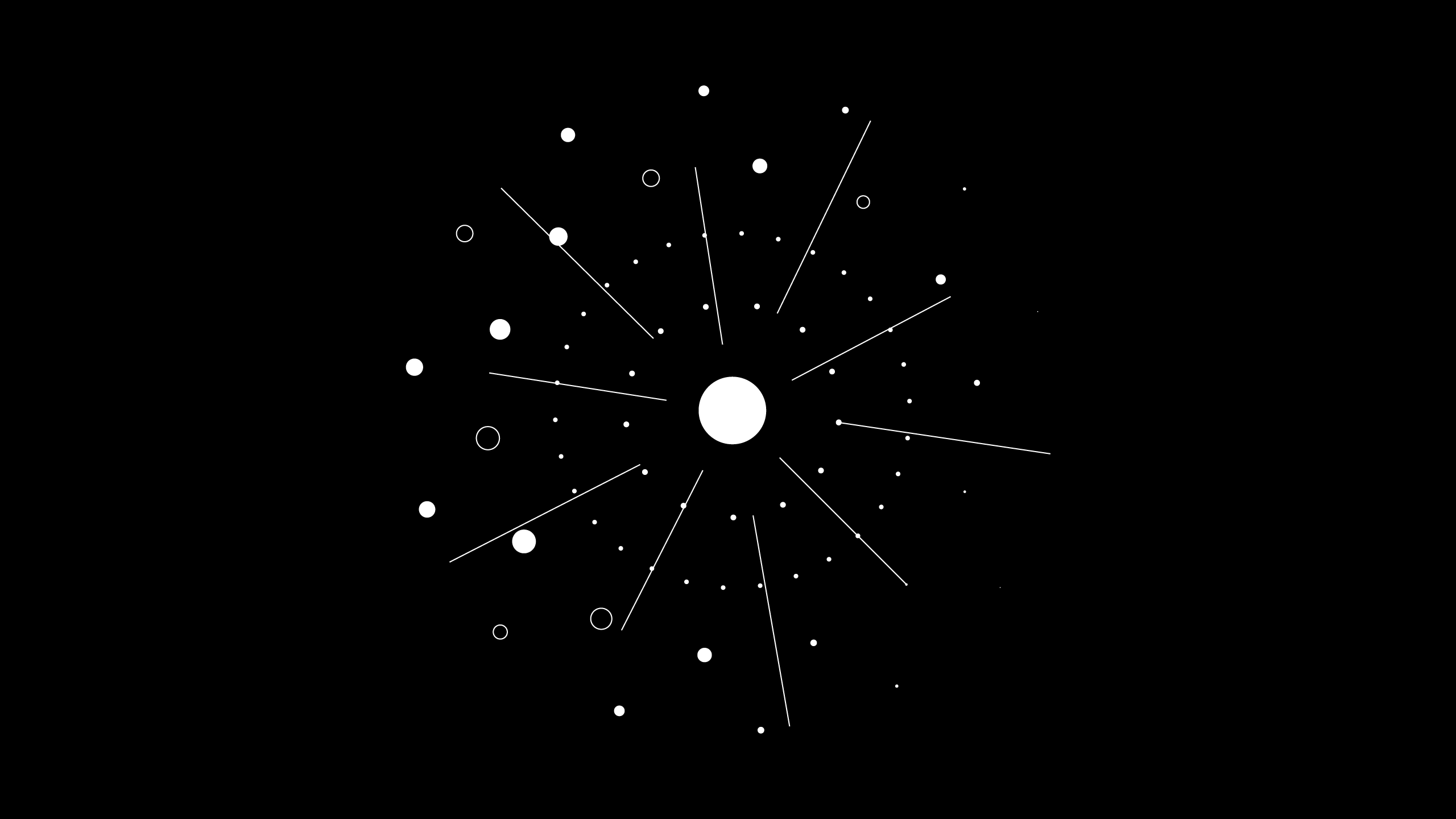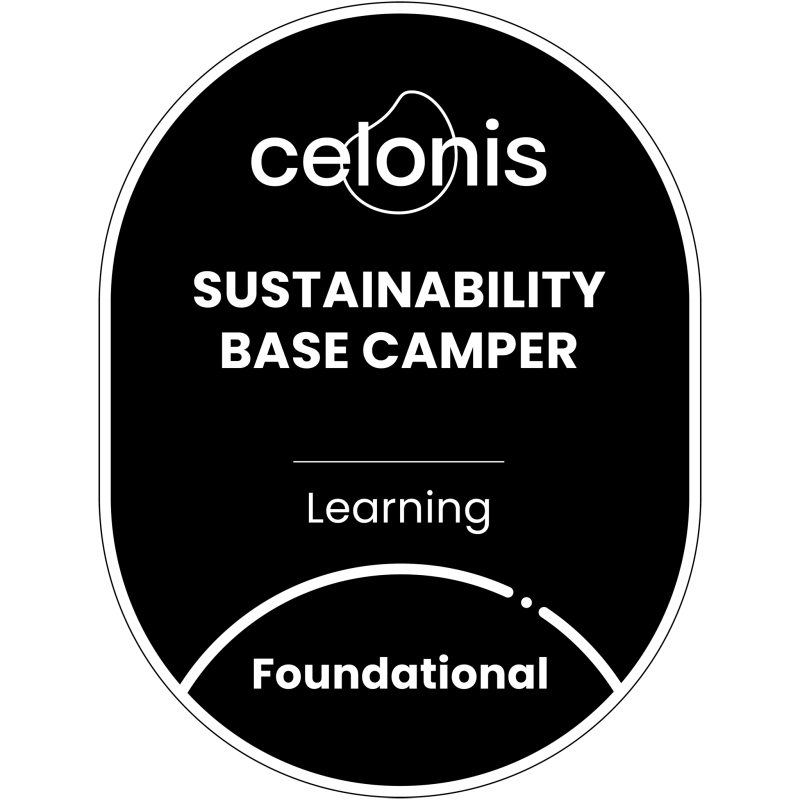
Sustainability training: Free online courses from Celonis Academy
Sustainability is a top priority for executives in the United States, Europe and around the globe, but many are unsure of how to get started or how to measure the effectiveness of the programs they’re currently running. Those were the findings of an early 2022 study conducted by Google Cloud. Of the more than 1,400 executives across 16 markets surveyed by The Harris Poll for Google Cloud, 64% reported that “environmental, social and governance (ESG) initiatives were a top — and rising — priority.” However, only 36% of respondents reported that their organization has “measurement tools in place to quantify their sustainability efforts.” And, the same number (36%) said a lack of “understanding the issue” was a barrier to achieving sustainability.
Uncertainty like this is understandable. Sustainability is a broad term used to describe a variety of specific environmental, social and economic challenges we all face. It’s also a subject filled with novel concepts and unique terminology, such as "Triple Bottom Line", "ESG" and "Materiality Assessment".
If your company, team or you as an individual need a place to start your sustainability journey, the brand new Sustainability Base Camp training track from Celonis Academy can give you that starting point.
Celonis Academy: Sustainability Base Camp training track
The Sustainability Base Camp training track contains four separate courses, an introductory brief and three separate courses that each focus on one stage or dimension of sustainability. Celonis Academy recommends taking the courses in the following order:
1. Sustainability Defined
This is the orientation course for the track and introduces learners to the important terms and concepts that are used when talking about sustainability. It also walks learners through what to expect from the following courses. Lastly, Learners are given a link to download the Sustainable Business Guide (SBG), an editable PowerPoint presentation that learners will use throughout the track. The SBG can be used to keep track of the tools and concepts presented during the course, and help learners build their own personal sustainability action plan.
2. Environmental Sustainability
Environmental sustainabiltly revolves around the protection of our global ecosystems and responsible use of natural resources. In this course, learners take an in-depth look at the drivers of climate change, goals to limit global warming, strategies to tackle greenhouse gas emissions and how companies are reporting on their emission reduction and offsetting actions. The course also shows learners how to calculate their personal carbon footprint, explains the difference between carbon neutrality and net zero emission and examines the devastating effects a 4-degree rise in global temperature would have on our cities and food production. As a resource for additional learning, links to external information sources are provided and cover a wide range of environmental topics such as water quality, air quality, reducing the use of fossil fuels, renewable energy, clean energy and the like.
3. Social Sustainability
This course examines the term "Social Sustainability" and outlines some of the key threats towards an equal society. Learners should come away from these lessons with a better understanding of how all humans have fundamental needs and the fulfillment of those needs is a prerequisite for a sustainable society. The course also explores why it’s important to close the consumption and inequality gaps in society and eliminate human rights violations. Lastly, the course explains how indices like a country’s gross domestic product (GDP), Social Progress Index and Human Development Index (HDI) can help us measure social sustainability. For example, the HDI measures a country's develpment and future potential by looking at their population's health and capatbilities along three dimentions:
Long and healthy life (life expectancy at birth)
Knowledge (expected years of schooling and access to higher education)
A decent standard of living (gross national income per capita)
4. Economic Sustainability
While public policy and government bodies like the Enronmental Protection Agency (EPA) in the U.S., Department for Environment, Food and Rural Affairs (DEFRA) in the UK, and European Commissioner for Environment in the EU are crucial to our sustainability effort, business also plays a critical role. During the final stage of the training track, learners explore how businesses can incorporate sustainable practices and sustainability principles into their normal operations, and why they should have sustainable development goals. By the end of the course, learners should be able to explain the terms "Triple Bottom Line", "ESG" and "Materiality Assessment" and understand how they fit within the broader topic of sustainability. Learners will also revisit the concepts of carbon neutrality and net zero emissions introduced in the Environment Sustainability course. Lastly, the course will identify approaches for assessing progress on businesses sustainability goals and explain why measurement is critical to avoid greenwashing.
The Sustainability Base Camp orientation takes about 15 minutes to complete and each of the stage courses take around 30 minutes. The entire track is designed to take 2 hours with recommended breaks. Learners can do the whole track in a single session or break it up over time.
Sustainability Base Camper Celonis Digital Badge
Once learners complete the Sustainability Base Camp training track, they’ll earn a unique digital badge. The Sustainability Base Camper badge signifies that the earner “can on a high level explain concepts such as ESG, the GHG Protocol Corporate Standard or Materiality Assessment, describe the factors of rising inequalities in society and discuss approaches that companies take to improve their sustainability performance.”

As I wrote about in my article on the top Celonis Digital Badges, these digital badges let you showcase the achievements, contributions, knowledge and skills you have earned through Celonis Academy. Badges can be added to your resume or CV, shared on your social media profile, or embedded in your email signature or on your website. I added my Sustainability Base Camper badge to my LinkedIn profile.
Sustainability is core to The Celonis Way
And if you’re wondering why Celonis, a company focused on execution management and process mining, created a sustainability training program, well it’s just part of our DNA. At Celonis, each one of us strives to follow The Celonis Way, because we want to help companies “change the way they work, so we can all do our part to ensure a better future for all.” And, we believe that earth is our future…not an inhospitable red planet that shall remain nameless.
“Process Mining has never just been a technology to me but a way of thinking. I am convinced this mindset will bring sustainable ideas to life – for our customers, society, the environment and us, the Celonis team,” said Janina Nakladal, Director of Sustainability at Celonis.
In a recent interview with Larry Dignan, editor in chief of Celonis Media, Nakladal walked through the 6 steps organizations need to take to operationalize sustainability.
"If sustainability is done well, business thinks about it without it being new," Nakladal said. "There are parallels between digital transformation and sustainability where they become the new normal."
To learn more about how Celonis is working with our partners and customers to achieve a more sustainable future, including our recent customer hackathon for proof-of-concept projects, check out the following stories:
Process Efficiency: The Key to Walking the Walk of Sustainability
How Reckitt Approaches Value, Sustainability, ‘Automation-First’ Culture
Lufthansa CityLine at Celosphere: Reducing Carbon Emissions with Celonis
Learn process mining and execution management skills
Celonis Academy offers over 300 courses to help you learn the process mining, process management, and execution management skills that today’s employers are looking for…all online and all for free. For more information about the on-demand training courses and learning material available from Celonis, check out the following resources:
Learn PQL with these free online courses from Celonis Academy
Top online training courses for business and tech professionals from Celonis Academy
These Celonis Digital Badges could be among the hottest new credentials for tech pros
Process Mining: From Theory to Execution (free 10-hour, on-demand course developed by Celonis and the Process and Data Science (PADS) group)
What is Task Mining? (free 4-min video introduction to task mining)
Celopeers job market message board
If you want to help build the execution management and process mining systems that will be part of every enterprise IT toolkit, come work for Celonis!



